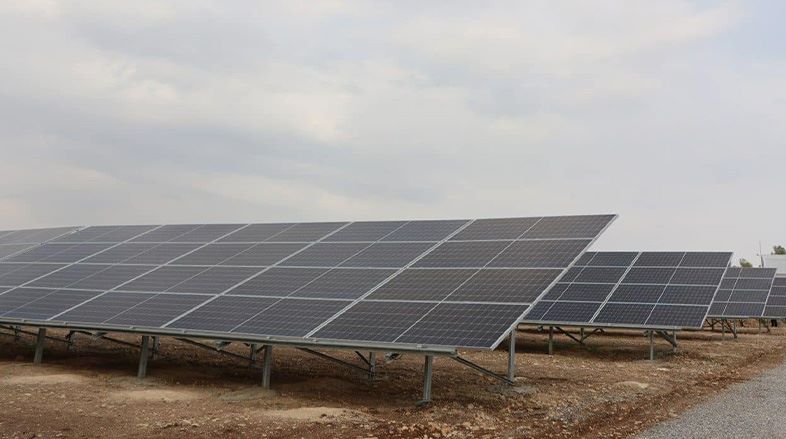Duhok governorate ‘on very good path’ towards carbon emission reduction, says UNDP

ERBIL (Kurdistan 24) – The Kurdistan Region’s Duhok province is already “on a very good path” towards cutting carbon emissions based on a plan released by the United Nations Development Program (UNDP) and the governorate, a senior official of the international organization told Kurdistan 24 on Wednesday.
The remarks by Dr. Stephan Schmitt-Degenhardt, the head of the UNDP in the Kurdistan Region, came on Wednesday during the inauguration of a two-megawatt solar energy-powered park in Duhok province.
Supported by the development agency and financed by the European Union for $2 million, the project includes a Duhok Sustainable Energy Action Plan (SEAP) – a blueprint to reduce greenhouse gas emissions by 2030.
One of the main goals of the plan is to reduce carbon emissions by 40 percent by 2030 in relation to the Business As Usual scenario based on the 2015 emissions, Schmitt-Degenhardt told Kurdistan 24 at the ceremony.
Describing the plan as “very ambitious”, the governorate is “already on a very good path towards achieving its goal”, the official added.
The Kurdistan Regional Government (KRG) has recently announced that 20 percent of its electricity production comes from renewable energy sources.
As a “pilot project”, the solar park is expected to encourage businessmen to invest in solar energy, as it is a competitive commodity for both businesses and private households, he said. He further added that the expected payback period of the energy source is only seven years.
“Even in oil-rich Iraq and Kurdistan, solar energy is competitive,” he said.
A memorandum of understanding was signed between the UNDP and the Duhok governorate in February 2020 to carry out the pilot project under the agency’s EU-funded program, “Supporting Recovery and Stability in Iraq through Local Development.”
The international development agency in late November also announced the completion of another solar panel project in the rural areas of Erbil province to provide solar-powered electricity to at least 40 wells, including drinking water, for the farming communities in the area.
A total of 1,800 tons of carbon dioxide is expected to be cut annually by the new project, Schmitt-Degenhardt told Kurdistan 24.
